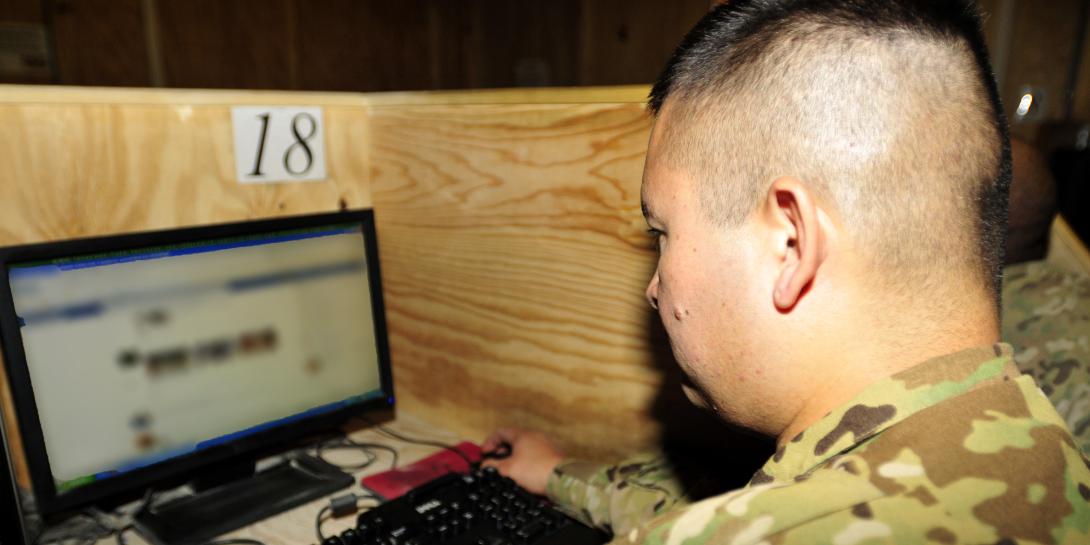Maintaining Warfighter Morale with High-Speed Internet
Keeping the U.S. military ready to fight takes more than hard work and training. Troops need a work-life balance as much as civilians, which means enjoying time spent with family and friends. High-speed Internet connectivity ranks high on a list of priorities because little boosts morale more than staying connected with loved ones, particularly when serving thousands of miles away, writes blogger Tony Bardo.
With U.S. military troops stationed in nearly 150 countries, the force is the primary safeguard for ensuring national security—domestically and abroad. Each day, military personnel sacrifice time from family and risk their lives to protect the interests of the country—which is why, in 1903, Congress authorized the Defense Department to build, operate and maintain libraries, schools, recreation centers and gyms for the warfighters.
Keeping the military ready to fight takes more than hard work and training. Troops need a work-life balance as much as civilians, which means enjoying time spent with family and friends. High-speed Internet connectivity ranks high on a list of priorities. Little boosts morale more than staying connected with loved ones, particularly when serving thousands of miles away.
Take the Naval Station Guantanamo Bay, Cuba, for example. When the base’s satellite Internet service provider unexpectedly went out of business, up to 40 percent of the base’s population was at risk of being completely cut off from the online world. No terrestrial broadband infrastructure meant no public or private Internet access. Base officials contacted Hughes, the world’s leading provider of satellite broadband, to minimize Internet downtime so that base residents could correspond with family, download music or movies, surf the web and feel connected to home while serving abroad.
A case involving the Florida National Guard provides another example. Units use a managed broadband service for a guest Wi-Fi network at more than 45 locations across the state, delivering constant, reliable and secure Internet connectivity to personnel, families and visitors. Operating independently from the secured DOD network, staff and visitors can access email and the web through personal devices, as allowed by the content restriction system.
Communication is critical for deployed service members. Even recreational Internet access proves a vital component of providing troops with a modern quality of life. Military facilities across the 50 states should take inventory of their recreational capabilities and address any gaps, with particular attention to Internet access.
Tony Bardo is assistant vice president of government solutions at Hughes.




Comments